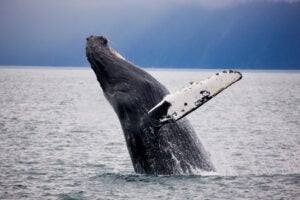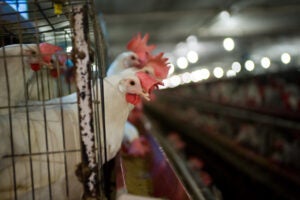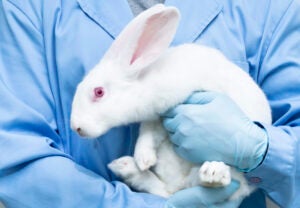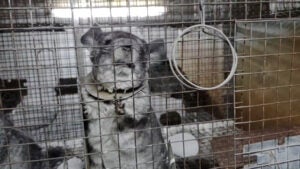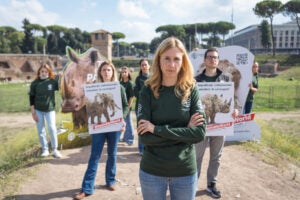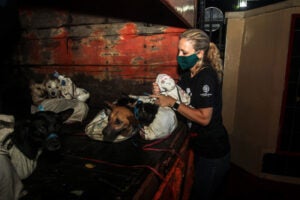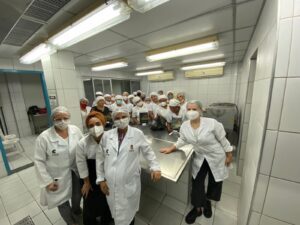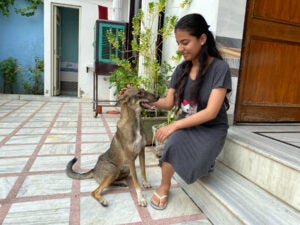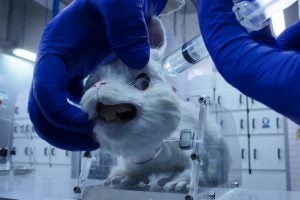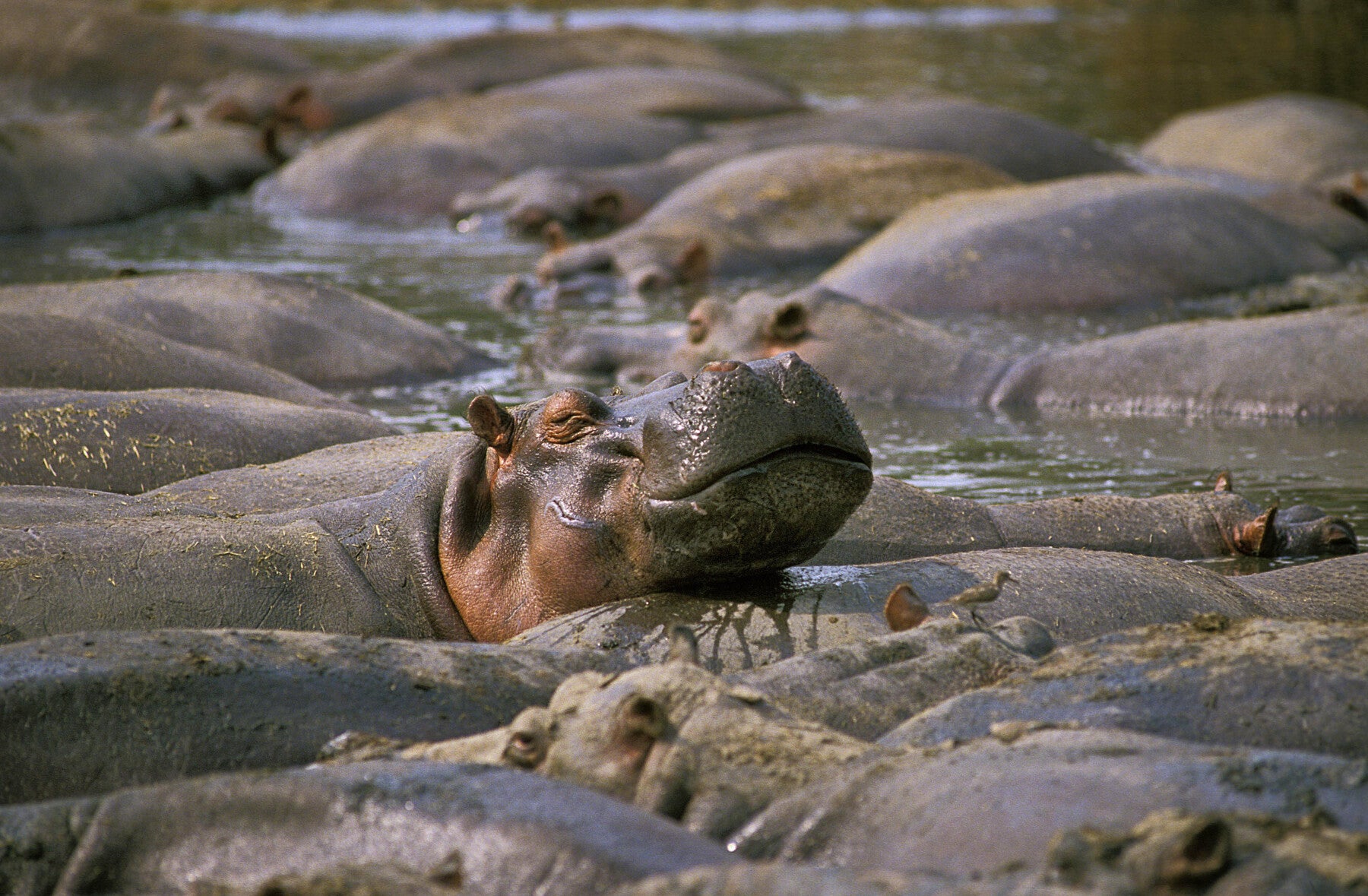
STRASBOURG, France—Today, the European Parliament adopted a resolution unequivocal in its demands regarding the European Union’s objectives for the upcoming meeting of the parties to the Convention on International Trade in Endangered Species.
While Parliament is making clear statements about eliminating the scourge of wildlife trafficking, closing the loopholes in the EU wildlife trade regulations and ending the imports of hunting trophies from CITES-listed species, Humane Society International/Europe has concerns as to whether the European Commission and the Member States will pay heed to the Parliament’s demands.
In November, representatives of the countries that have signed the CITES treaty will meet in Panama for the 19th meeting of the parties. At COP19, they will decide whether an array of threatened and endangered species, including the common hippopotamus, African elephants, requiem sharks and glass frogs, should be given stronger, or weaker, international protection from overexploitation for commercial trade. Humane Society International/Europe is deeply concerned that the Commission has already recommended that the EU should not support a proposal from 10 African range states to transfer the common hippo to CITES Appendix I, which would prohibit all commercial international trade in hippo parts and products and throw a lifeline to this imperilled species. In addition, the Commission has recommended that the EU abstain on the proposal from 14 CITES Parties to list glass frogs on Appendix II, which would provide crucial protections and trade monitoring of these imperilled amphibians.
Dr Joanna Swabe, senior director of public affairs for Humane Society International/Europe, says: “We are delighted that MEPs have adopted such a strong resolution in advance of the CITES COP19 meeting, recognizing the persistent threat posed to wildlife by international trade. Given that the EU is a highly influential bloc in CITES decision-making, they are often in the position to make or break decisions. Failure to support the hippo, glass frogs and other proposals put forward by range States, who are seeking to gain much-needed extra protection for their endemic species whose survival is threatened by overexploitation for commercial trade, may push them further towards the brink of extinction. It is unconscionable for the EU not to support such proposals given its own loudly trumpeted biodiversity strategy commitments to do all it can to halt global biodiversity decline.”
In addition to demonstrating its support for various CITES proposals, the European Parliament’s resolution recognizes that the EU’s role in the global fight against wildlife trafficking needs further strengthening. MEPs echo Humane Society International’s call for the Commission to take action to close the loopholes in the existing EU wildlife trade regulations by delivering a legislative proposal to criminalize the import, export, sale, acquisition or purchase of wild species that are taken, possessed, transported or sold in violation of the law of the country of origin.
HSI also welcomes the European Parliament’s call for urgent action to be taken to prohibit the import of hunting trophies derived from CITES-listed species. The EU is the world’s second largest importer of hunting trophies behind the United States. EU law continues to allow hunters to import trophies from threatened species, many of which are protected internationally through CITES and the EU Wildlife Trade Regulations and Habitats Directive.
Liam Slattery, Humane Society International/Europe’s trophy hunting campaign director, said: “The European Parliament’s call for urgent action to curb the import of CITES-listed species hunting trophies is a move supported by a clear majority of the public across member states. The Netherlands and France have already implemented bans on certain species of trophy. The Belgian Federal Parliament has passed a unanimous resolution demanding the government stop authorising trophy import permits. And the Environment Ministry in Germany has expressed an intention to restrict import of hunting trophies from protected animal species. With other Member States also actively considering proposals to limit or prohibit trophy imports, the Commission must display leadership on this issue in line with such measures, and the EU’s own biodiversity strategy.”
Facts:
- HSI strongly urges the EU to support the CITES COP19 Proposal 1 to list the common hippo on Appendix I. Wild hippo populations are declining or unknown in 65% of countries they inhabit. Hippo ivory is popular among consumers and nearly 80,000 hippo products—nearly all wild sourced—were imported in the most recent decade for which data are available. Poaching and trafficking are a primary threat to hippos, and the illegal trade is often intermingled with legal trade. Further, the current levels of offtake—both legal and illegal—are predicted to result in future declines in wild hippo populations. This indicates the need to curtail international commercial trade in this species due to conservation concerns and the risk of promoting the illegal killing and trade. The EU contributes to the exploitation of hippos—nearly 800 hippo trophies were imported by EU Member States between 2014 and 2018.
- HSI strongly urges the EU to support the CITES COP19 proposal to list glass frogs on Appendix II. Half of the species in this family are threatened with extinction, and individuals of highly threatened species are indistinguishable from others, necessitating the inclusion of the entire family in Appendix II. As the males of many of these frog species actively defend clutches of eggs, removal of males results in depredation of entire clutches, causing high mortality rates. Further, glass frogs have become increasingly popular in the international pet trade, and much of the trade happens illegally. Listing the family on Appendix II would bring much-needed monitoring of international commercial trade and help to stem illegal trade in these species.
- HSI strongly urges the EU to support all of the proposals to add or increase protection for reptile and amphibian species. There are 21 of these covering 239 species which includes 53 turtle species. All these vulnerable species face threats including overexploitation for international trade. It is alarming that the Commission is not recommending support for many of these proposals from range states seeking assistance from importing countries including EU countries in controlling trade to ensure wild populations are not decimated.
- Between 2014 and 2018, the EU imported nearly 15,000 hunting trophies—around eight per day—of 73 internationally protected species.
- The number of trophies coming into the EU increased by 40% in five years, despite opinion polls indicating that the vast majority of EU citizens surveyed are clearly against trophy hunting and would like to see an end to this brutal industry.
ENDS
Media contact: Cassie Bodin-Duval, international coordinator media relations: cbodinduval@hsi.org ; +32 (0) 469 149 469

